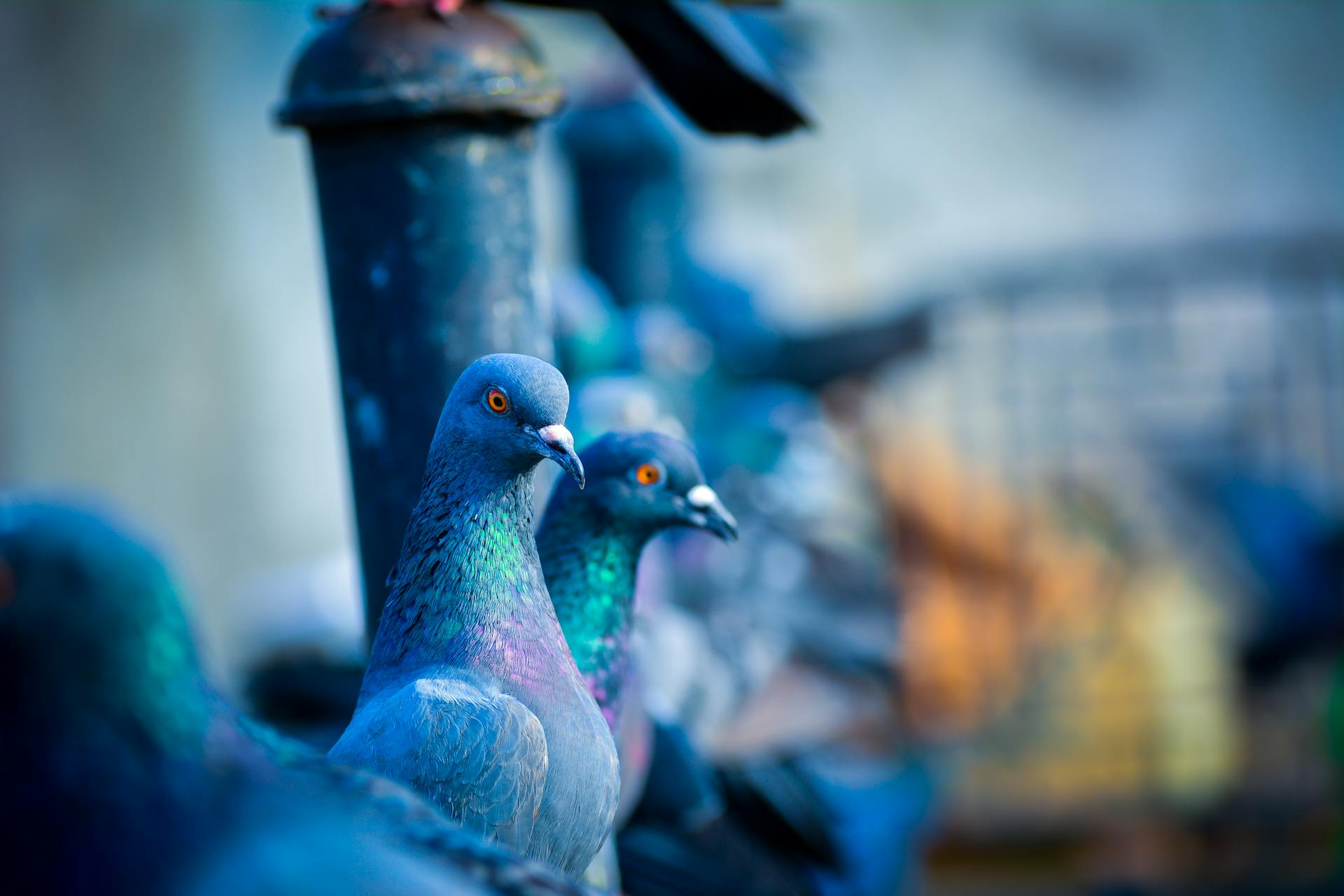
We all know that squirrels are a beloved part of the wildlife in our backyard, but what’s lesser known is just what exactly makes them like or dislike certain smells. It turns out, there is one smell specifically that squirrels hate - and this may surprise you.
The strong odor of white pepper is especially offensive to squirrels and will cause them to steer clear! If you’re having a problem with pesky squirrels trying to access your garden or bird feeder then a sprinkle of white pepper could be the solution. Place it around areas they frequent, like bird feeders and trees they climb and even in places where they enter your home (through gaps in walls or eves). This will send them running away!
Some other smells that may repel squirrels include garlic, cayenne pepper, onion powder, chili powder and vinegar. Although white pepper has been proven to be the most effective for deterring our little furry friends from their intended target area. If you have had issues with other methods failing then give this one a try – especially if combined with some other varieties of odors! You may just find success in keeping the bothersome critters away from your space!
What sound do squirrels dislike?
Squirrels have keen hearing, and they are usually able to detect sounds better than humans. So, when it comes to sounds that squirrels dislike, there can be quite a few. While it’s generally accepted that loud noises such as banging pots and pans or honking car horns will scare off most animals (including squirrels), this isn't the only sound they dislike.
Being territorial creatures by nature, squirrels find some vocalization of other animals threatening. In particular, birds of prey such as hawks may cause any nearby squirrel to take flight in alarm – their shrill cries can indicate danger and therefore are seen as threats by some species of tree-dwelling rodents like the arboreal red squirrel.
Moreover, even though certain mammals do not sound “threatening” per se—like cats and dogs—the squeaking bark or bark-like noise certain breeds make could also trigger flight from a self-preserving matter from squirrels; after all, cats eat small mammals like the ones found in your backyard! Additionally, smaller predators like foxes might elicit similar responses from adult red Squirrel's due to their predatory ways; if a fox is nearby then you might see them flee quickly away!
Finally, besides natural predator calls one thing many people don’t consider is ultrasonic sound – while these frequencies humans cannot hear them (thus appearing mute), many animals including rodents can pick up these frequencies with ease – sometimes these high frequency noises (sonic pest control devices) used by people trying to scare off rodents may have undesirable effects on red Squirrel's if used at too close range or excessively loud volume levels causing prolonged distress among the entire population in an area!
You might like: People Hate
What food do squirrels not eat?
Squirrels are adorable creatures who are usually seen scurrying around the yard and gathering food, but did you know there is a certain type of food they will never eat? While squirrels typically enjoy an array of fruits, vegetables, nuts and other grains common to their local habitats, one food item they will never eat is onions. Onions are poisonous to squirrels because of the high concentration of sulfoxides and other compounds in them that can cause harmful side effects like seizures or paralysis. Additionally, onion-based seasonings such as garlic powder should also be avoided when feeding squirrels as they contain concentrated amounts of these compounds too. So if you're wondering what food not to feed your local neighborhood squirrels - make sure you cross off onions from your list!
Explore further: Hate Food
What color do squirrels find unappealing?
Though squirrels are born with color vision just like people, it's thought that their eyes don't differentiate colors as effectively. That being said, it stands to reason that they wouldn't necessarily associate certain colors as being "appealing" or "unappealing".
However, when trying to keep squirrels away from a garden or bird feeder in particular, bright yellow and silver (reflective) colors can be used to great effect. The idea is that the reflection created by these colors acts as an irritant and will cause the squirrels to want to stay away. This theory has been tested by many backyard gardeners who've had success in deterring them with products such as aluminum foil, shiny helium balloons and similar colorful items.
We can take this one step further and suggest that if choosing a paint color for your bird feeder or house trim, try to stay away from bold primary colors like bright reds and yellows – these may bring too much attention from foraging animals both invited and otherwise!
What type of environment do squirrels avoid?
While it may not always be easily visible, squirrels will typically avoid certain kinds of environments to stay safe and healthy. Some of the key elements that a squirrel will look for in its surroundings are food availability, safety from predators, and trees for shelter.
When it comes to food sources, squirrels tend to avoid any type of environment that lacks available nutrients like nuts or berries. Similarly, if an area does not have enough natural cover such as tree cover or thickets of brush, this can make it more difficult for a squirrel to remain safe from predators like hawks or foxes.
At the same time, squirrels also need trees for shelter in order to create comfortable nests and be able to rest safely during the day without worrying about potential dangers around them. If an area does not contain adequate amounts of tall trees with thick foliage or branches available then this can pose a major hindrance on a squirrel's ability to make use of their own natural resources when they need them most.
In general, any environment that is lacking these three key components is likely one which a squirrel would prefer avoiding altogether when possible - much like animals do in nature when presented with potential risks which could potentially lead them into harm's way if they choose incorrectly in those particular situations!
Broaden your view: How to Clip Cat's Nails When They Hate It?
What type of animal frightens squirrels?
Are you wondering what type of animal might frighten a squirrel? After all, they are so small and fast, it hardly seems possible. The answer is an owl! Owls are incredibly effective predators of small mammals such as squirrels, and they can also fly silently enabling them to approach their prey with stealthy efficiency. Even if not actively hunting, the sight of a large owl swooping down is enough to put any squirrel into flight mode in an instant. Although owls prefer to hunt at night when their vision is best, they can still be active during the day and provide plenty of cause for alarm throughout the forest or your garden!
What type of visual stimuli do squirrels not like?
Squirrels are one of the most widespread and extensively studied small mammals, and they can be found in urban, suburban,and natural wilderness habitats. While these adorable critters seem to be quite social and love interacting with humans, there could actually be some types of visual stimuli that they don't like.
First off all, squirrels have very good vision which helps them find food since their diet is made up mostly of nuts and seeds. As such, bright colors can actually cause distraction from the main task at hand--finding food! Bold colors can also create anxiety for squirrels as it might appear too unusual for them to comprehend.
Secondly, relative size matters for these little critters since predators are usually much bigger than them. Therefore; displaying larger objects in their environment - even just an image - may provoke the same anxiety within a squirrel as if it were seeing a real larger object or animal nearby! Similarly, sudden movements or loud noises can also startle a squirrel and make it feel threatened if they perceive danger while scavenging across its territory.
Finally, despite its good vision during daylight hours; a squirrel's night-time vision is actually much poorer than during the day as some species lack tapetum lucidum (a reflective layer located behind their retina); meaning that artificial lights in particular can become disorientating to them over longer distances or when running across open spaces (e.g street crossing) at night time searching for refuge tree trunk boltholes close by.
To wrap up; while general perception wanting us to believe that 'squirrel looking' at us is normally showered with smiles from our part – we should note that there could almost certainly be some types of visual stimuli which these wild creatures would not appreciate or care for!
Featured Images: pexels.com


